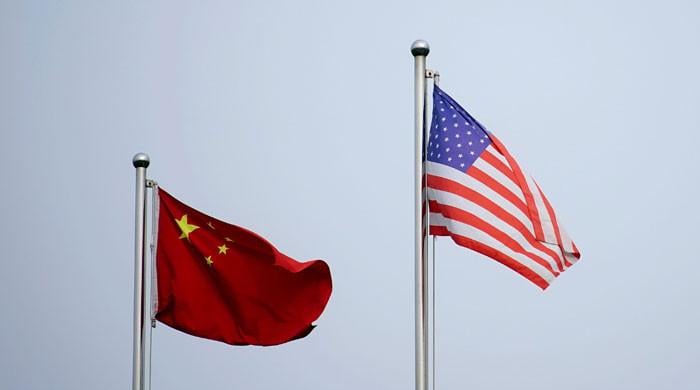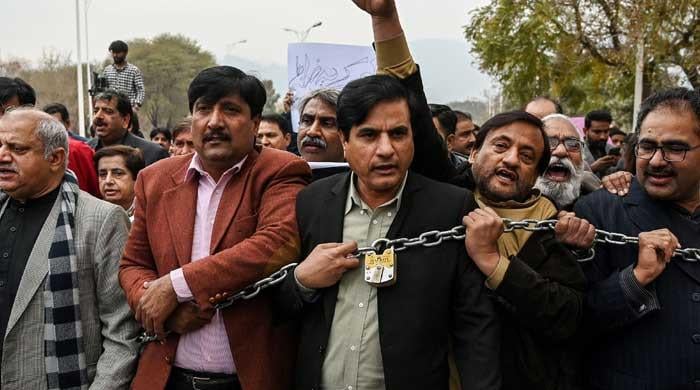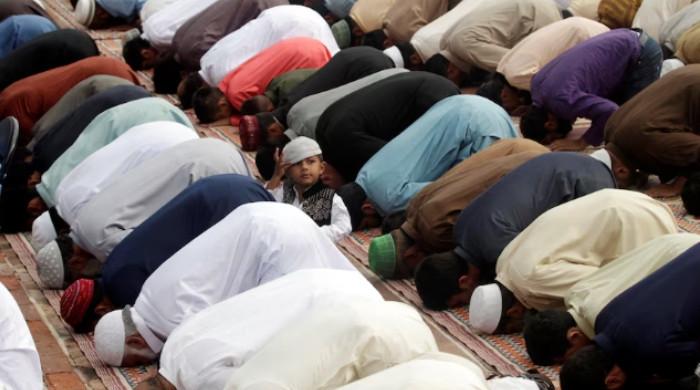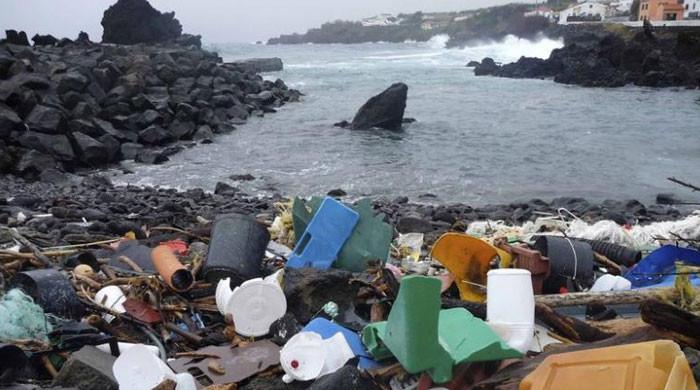Pakistan’s Saudi embrace
Saudi Arabia is on a reform binge. The young crown prince has opened up too many fronts within, and otherwise, to begin reshaping the state and society in a more modern mould, apparently.
March 05, 2018
Saudi Arabia is on a reform binge. The young crown prince has opened up too many fronts within, and otherwise, to begin reshaping the state and society in a more modern mould, apparently.
With deeper intentions as well, of strengthening his hold over power while his ageing and increasingly ailing, father acts as the King; he has consolidated his eminence in no uncertain terms by purging the competition and dispossessing them of their riches and thus influence.
This has also included extending popular freedoms like permitting greater liberty to women by allowing them to drive. And of course initiating wars, proxy wars, and political confrontations with Iran to establish his bona fides as a warrior prince.
If all that delivers, then the young Prince will have an American ally of great trust that will add to his repertoire of credentials to be the next unchallenged leader of the oil-producing, most eminent Muslim state in the world.
It is in this final characterization of Saudi Arabia, that Pakistan sees itself roped into an act either of dissonance or consonance.
Dissonance when Pakistan, uncharacteristically, and perhaps for the first time since inception, refused a Saudi request to send forces to facilitate the war with Yemen. There were many qualifying reasons for this decision by Pakistan, and each of them was as relevant as it could be in the prevailing context. Nonetheless, the move did send the two countries on a rare but very poignant deviance, in a relationship that had always been guaranteed.
Many visits later - by Pakistan’s power elite - the relationship has barely held, to Pakistan’s unease because losing Saudi Arabia is akin to losing the pillar around which Pakistan premises its foreign policy. Considering the favours Saudis bestowed upon Pakistan over the decades – financial, economic, social and geopolitical – Pakistan cannot simply abandon the kingdom, regardless of the religious spin put on it through generations.
By agreeing to send in more troops – around 1,600 to begin with – adding to around a 1,000 already positioned there, it may have just opened up for itself a little breathing space in Riyadh.
It is important to remember that the Saudis, in an imperial pique, have been lately hosting Indians, who have made a beeline to occupy space vacated by Pakistan. The Indian Prime Minister, it’s finance and foreign ministers, have all been travelling in quick succession there. While the UAE, the perpetual Pakistani ally in the GCC, had similarly refused to entertain any Pakistani leader on a visit to the UAE and only a persistent effort resulted in them hosting the army chief.
The Pakistani gesture of adding troops in Saudi Arabia, to meet up some of the Saudi needs in defence at home, against terror in particular, means that Pakistan is now attempting to repair some damage.
Pakistan and Saudi Arabia are woven into formal agreements in defense cooperation. When Prince Mohammad decided to put his own forces to war in Yemen with deployments in its restive eastern borders on the Gulf, it created a hole in its military presence against home-grown discontent which remains a major Saudi sensitivity.
Pakistani troops in all likelihood will take up the flex, in those areas, without violating the underlining conditionality of not being used against a third nation, and not at all against another Muslim nation.
In the existing context, the matter on Iran has acute sensitivity for Pakistan. It does not wish to be seen partnering in any Saudi effort against Iran. As a neighbour and an erstwhile ally of great dependence and reliance, Pakistan must keep the relations with Iran on the same keel as with Saudi Arabia.
A Pakistan mired in its own war against terror, its effort within to fight the scourge of extremism and religious fanaticism, and the need for it to balance its own requirements from a persistently opposed Afghanistan and the US on the western borders, requires Pakistan to be cautious when diluting its military focus.
India’s belligerence on the eastern border imposes another dynamic of caution restricting Pakistan from frittering its precious resources. Under such constraints then, to be able to take troops out to help Saudi Arabia is not, therefore, a minor exception.
Pakistan’s current predicament on the foreign policy front stems from another incongruity with the US on Afghanistan. It hurts the US to no end that Pakistan will not do its bidding as told. Pakistan’s own preoccupation with its internal political strife and a lack of focus on what is brewing in its neighbourhood has also caused matters of regional importance to have lain unattended.
Such complications finally came to the fore when the US was able to convince other members of the Financial Action Task Force (FATF), in Paris, to place Pakistan on notice for omissions in its delivery on international obligations related to terror financing and money laundering. The sword of being ostracized as a global pariah continues to hang over Pakistan.
Questions will continue to be raised about the level to which Saudi-Pak relations can be restored. But given how military support to Saudi Arabia has been critical to Saudi requirements and how it has defined their mutual relationship, it goes without saying that this is where the future Saudi-Pakistani relations are also expected to be anchored.
Pakistan will have to barter some of its assumed neutrality towards Iran, creating further neighbourly complications, but a Saudi intervention could win it a more lasting reprieve vis a vis the US.
These are countervailing imperatives. Pakistan is placed centrally in the Hornet’s nest and it will be up to its political, military and diplomatic leadership to be nimble enough to cover gaps which remain aplenty. This necessitates complete focus of the leadership. In an election year, when political disharmony is at its peak, can this be the year when Pakistan escapes an imposed dragnet? Is it that moment of truth for Pakistan? By all signs, that seems to be the case. This shall be a particularly tough year for Pakistan on all fronts.
- Air Vice Marshal (retd) Shahzad Chaudhry is a political and security analyst.
Note: The views expressed are those of the author, and do not necessarily reflect the official policy or position of Geo News or the Jang Group.











